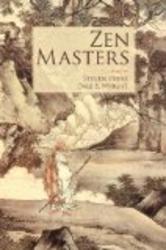Description
This excerpt from a book about Zen Buddhism discusses the importance of Zen masters and how they have been portrayed in literature. Ten leading Zen scholars discuss the image of the Zen master in depth. Each chapter looks at a different master and their various traits.
Extending their successful series of collections on Zen Buddhism, Heine and Wright present a fifth volume, on what may be the most important topic of all - Zen Masters. Following two volumes on Zen literature (Zen Classics and The Zen Canon) and two volumes on Zen practice (The Koan and Zen Ritual) they now propose a volume on the most significant product of the Zen tradition - the Zen masters who have made this kind of Buddhism the most renowned in the world by emphasizing the role of eminent spiritual leaders and their function in establishing centers, forging lineages, and creating literature and art. Zen masters in China, and later in Korea and Japan, were among the cultural leaders of their times. Stories about their comportment and powers circulated widely throughout East Asia. In this volume ten leading Zen scholars focus on the image of the Zen master as it has been projected over the last millennium by the classic literature of this tradition. Each chapter looks at a single prominent master. Authors assess the master's personality and charisma, his reported behavior and comportment, his relationships with teachers, rivals and disciplines, lines of transmission, primary teachings, the practices he emphasized, sayings and catch-phrases associated with him, his historical and social context, representations and icons, and enduring influences.
